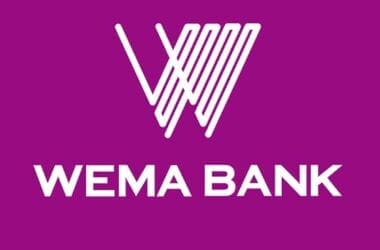When I think of OPay and the speed at which it is launching and expanding its services, the lyrics which readily come to mind is the 1979 McFadden & Whitehead classical hit single “Ain’t No Stopping Us Now” [We’re on The Move”].
That in my opinion, literally best describes what seems to be going on at the company, as a little over a week after it launched its tricycle-hailing service OTrike in Aba and then Kano, it has launched a public bus-hailing service called OBus in the city where it all started – Lagos. In an article by Techpoint.africa however, a staff at OPay addresses the speed at which it seems to be moving at and reaffirms that the “speed limit” is very much under control saying “I admit OPay is moving very fast. However, I believe we will learn from experience, just like GoKada which is having its share of challenges already.” O-kay!
The article further states that, OBus is a commuter transit service that will operate using branded hummer buses for intrastate trips in Lagos. It also reports that the service has been incorporated into its OPay app just like its other hailing services; ORide and OTrike and to access the service, users will have to update the app. Whew!
Payments
The service is reported to support cashless payments via a QR-enabled (Quick Response) card that comes in different denominations ranging from as low as N200 to as high as N2000 and are to be purchased from OPay agents at different designated bus stops along the CMS-Ikeja routes where it only operates. Payment is to be made inside the bus using a sensor reader to read a ticket barcode which should have been generated through the mobile app before the trip or alternatively using the OPay wallet.
Lagosians and Public Bus Systems
Public Buses are about the most commonly used form of transportation in Lagos made possible by rickety and/or non-road worthy buses such as the ‘Danfo’ or ‘Molue’, characterized by highly irritable conductors OR by the now privately managed Bus Rapid Transit System (BRT) [the second shot at the transit system after the first which commenced in 2008 was run down, owing to several reasons].
The OBus model sounds impressive at first thought and shouldn’t prove too difficult to Lagosians as there also exists an organised form of cashless payment via the BRT where the system introduced the Lagos Connect or “E-Connect” cards in April 2018, with the hope of eliminating cash payment at the end of the year. But with most public systems that target strict forms of cashless payment in Nigeria [from the days of the cash-less policy frenzy], this is yet to be achieved.
My concern however, is with the feasibility of pre-generation of tickets through a mobile app before the trip. Especially because it is going to be for “public” use. This already disqualifies commuters who are not tech savvy and cannot confidently navigate their way through apps or do not own smartphones. A form of technological stratification of the public?
An example which readily comes to mind is the case of the Automated Teller Machines (ATM) versus Nigerians where many Nigerians still cannot conveniently carry out banking operations using machines and most times beckon on members of the public or security personnel of the bank to help complete the transactions. Thinking about it, that might just be the way out for such people with the OBus payment system. Which means, OBus may just have added a task of incorporating into its operations, forms of public service announcements of possible fraudulent activities that may happen to unsuspecting customers that are not tech savvy.
As I stated in the OTrike article, I would like to see how this goes!
‘Lagos 101’
In case you are a little confused about ‘O wa’ in the title of this article. ‘O wa’ is a commonly used term when riding on public buses in Lagos, to connote to the driver or conductor the need to alight at a bus stop along the bus routes.
It literally translates to mean: ‘There’s one’. Informing the bus conductor that there’s a stop at that particular bus stop when the stop is mentioned.
Now you know!






